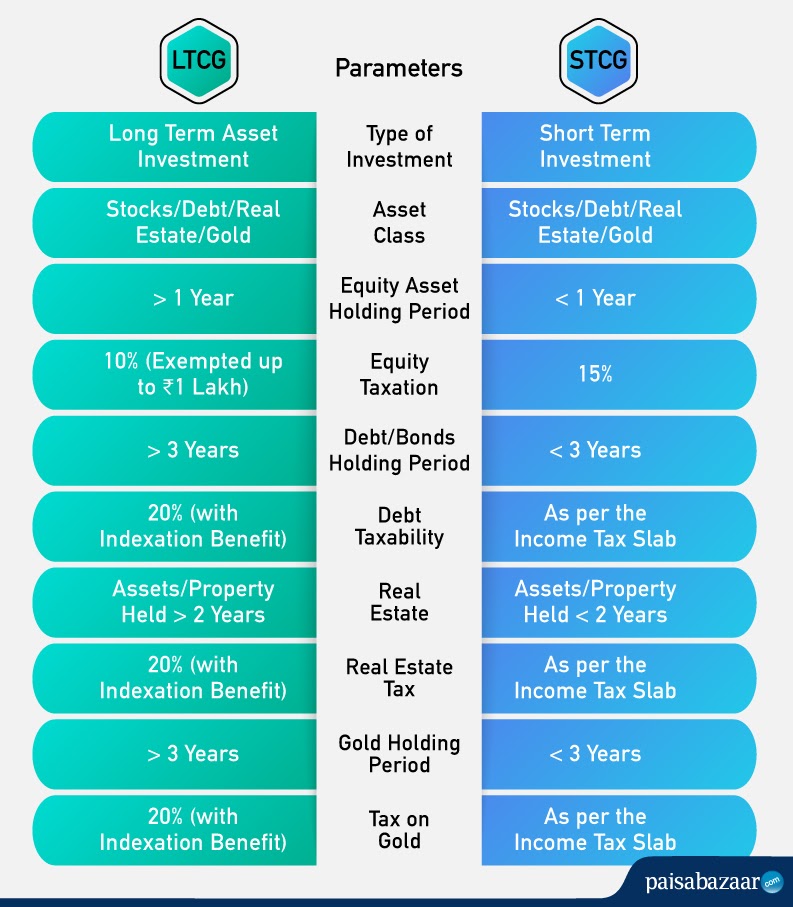Capital Gains are the gains earned from the sale or transfer of assets that include shares, bonds, real estate, gold, debentures and related instruments. Simply put, Long Term Capital Gains (LTCG) are the capital profits from long term investment of the assets while Short Term Capital Gains (STCG) are gains earned from sale of short duration assets. For example, the minimum holding period for Equity Funds is 1 year so as to be counted as Long Term Investment. The gains on any equity fund will be considered as Long Term Gains if redeemed after a year. If a fund is redeemed in less than a year, then it will be a Short Term Investment and gains on it are Short Term Capital Gains. This duration of long or short term investment and hence the gains on it to be considered as LTCG or STCG differs from one asset to another. Like for Equities, it is 1 year but for Debt Funds, long term assets are when you hold it for at least 3 years.
Also Read:- 10 Best Mutual Funds for Daughter’s Education
Comparison Between LTCG and STCG

Few Things must be noted regarding the above table:
In Real Estate LTCG Taxation, certain exemptions are possible either under Section 54EC Bonds or if the gains are reinvested in the residential property. It will not be exempted in STCG tax even if the bonds are issued by RECL (Rural Electrification Corporation Limited) or NHAI (National Highway Authority of India)
Gold can be physical gold, digital gold, gold funds or gold ETFs (Exchange Traded Funds) and here also in Long Term Gains taxation, exemption under Section 54EC bonds is possible
It must be borne in mind that in case of physical gold, there is an added tax – GST (Goods & Services Tax) of 3%
Equity Long/Short Term Capital Gains are gains from Equity Funds investing through shares of listed companies while Debt LTCG/STCG are Debt Funds investing in debentures, certificates of deposits, bonds and commercial papers.
Also Read: Taxation on LTCG